Horizon Zero Dawn's Aloy gave me strength to leave the Mormon religion
Aloy helped me taste freedom before I freed myself.
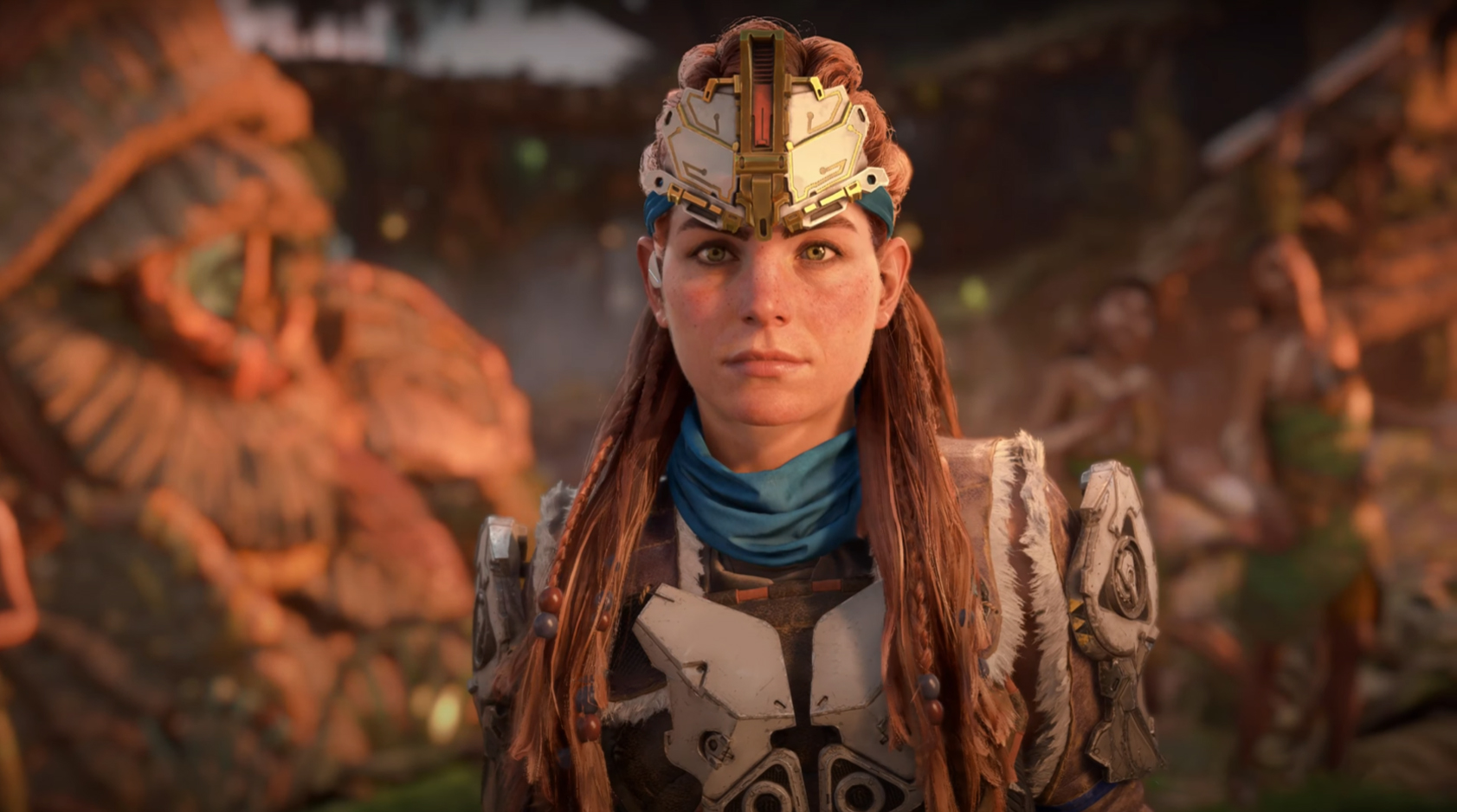
Aloy has become a powerful symbol for many people over the last few years and for good reason. She doesn’t take crap from anyone, is an intelligent problem solver, treats everyone equally, is powerful, has awesome hair, and doesn’t follow the tired female clichés ubiquitously found in the male-dominated video game industry.
However, the things that have struck me the most about her are how much she tries to see past superstitions to learn about the world around her and how she ignores arbitrary reasons to judge people due to beliefs forced upon her.
When I first popped the Horizon Zero Dawn (HZD) disc into my PS4 five years ago and stepped into Aloy’s shoes, I had no idea how much I would look up to her. She not only helped strengthen my resolve to leave the Mormon religion I was raised in, but also helped me cope with the social consequences of leaving. In all honesty, she helped me on my journey to find out who I really was and who my friends really are.
As with any culture or religion, it’s hard to explain all of the nuances and beliefs involved with the Church of Jesus Christ of Latter-Day Saints (LDS), more commonly known as the Mormons, unless you’ve been part of it for a long time. Writing about my experiences growing up as a woman within the religion and everything involved in leaving it could probably end up being a massive novel, so I’ll just confine my story as it relates to Aloy. Just like her, I learned that religion is a very personal thing that can help people in need, but it can also be a huge hindrance to people who don’t fit into it.
Taught beliefs vs personal beliefs
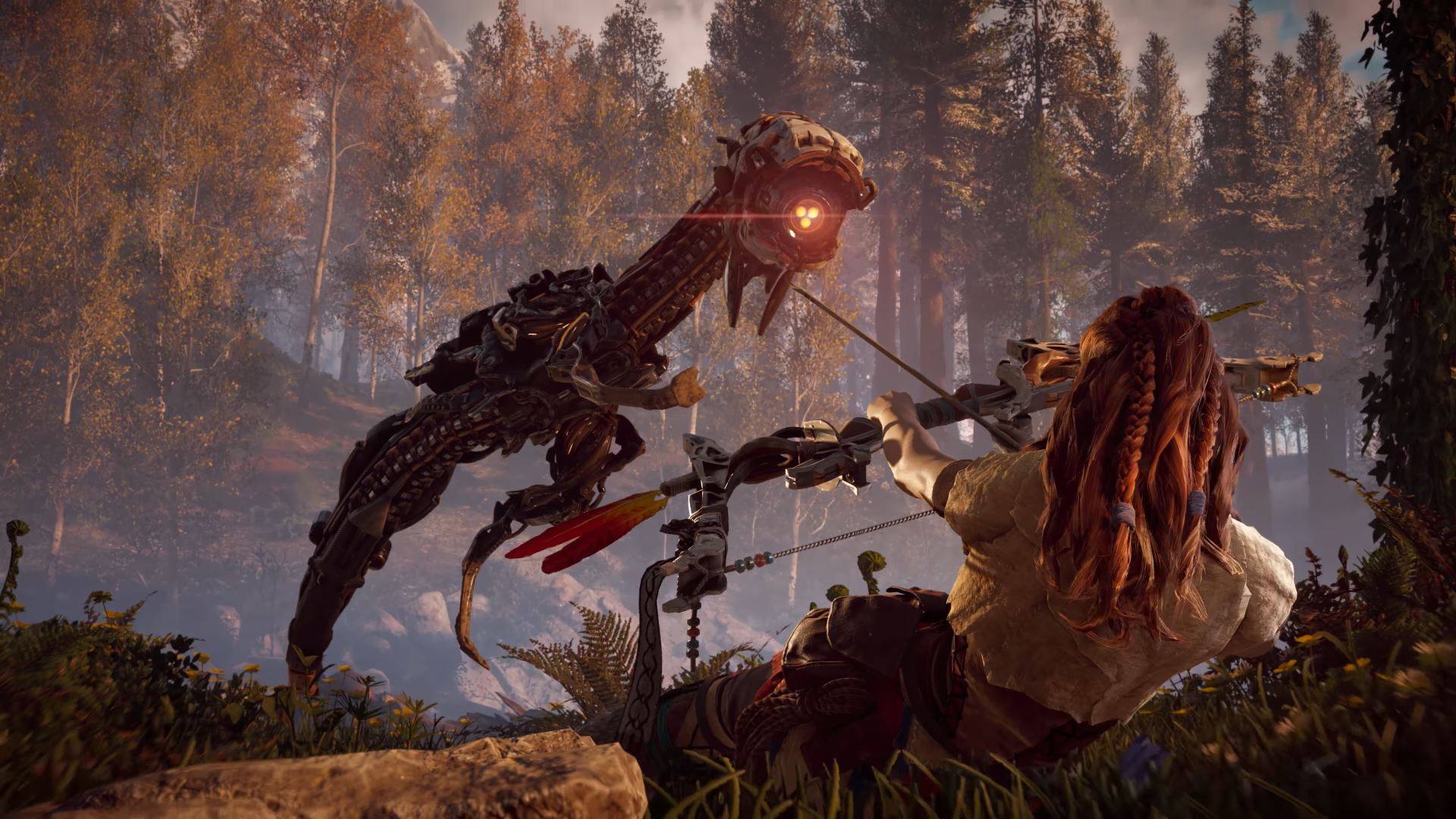
When I played HZD for the first time, I was living a double life. I had already secretly checked out of Mormonism mentally years ago and had adopted some beliefs that weren’t in line with leadership core teachings. However, I was still going through the physical motions of going to church to retain my friendships and prevent family complications. I felt trapped. It was a frustrating existence where I wasn’t able to ever truly be myself knowing how my peers and family would react. This isn't unlike what Aloy experiences in HZD.
In Aloy's world, ruins from an ancient civilization are everywhere and powerful machines prowl the land. Why things are this way is shrouded in mystery. So the matriarchal Nora tribe that Aloy grows up next to reveres and fears them. As such, the tribe leaders prohibit anyone from diving into the ruins or traveling beyond their sacred lands.
Get the latest news from Android Central, your trusted companion in the world of Android
Fortunately, as a child, Aloy stumbles into an ancient cavern left by the “Old Ones” where she acquires a piece of ancient tech called a Focus. This headgear is able to scan her surroundings, take readings, and find relevant information from a huge database. It’s basically like an idealized futuristic internet that helps her understand the world around her and the reason for the machinery in it. Her guardian Rost tries to take the Focus from her, believing that things from the "Old Ones" are to be feared, but Aloy manages to hold onto it and grows up with greater understanding of how the world really is than those around her because of it.
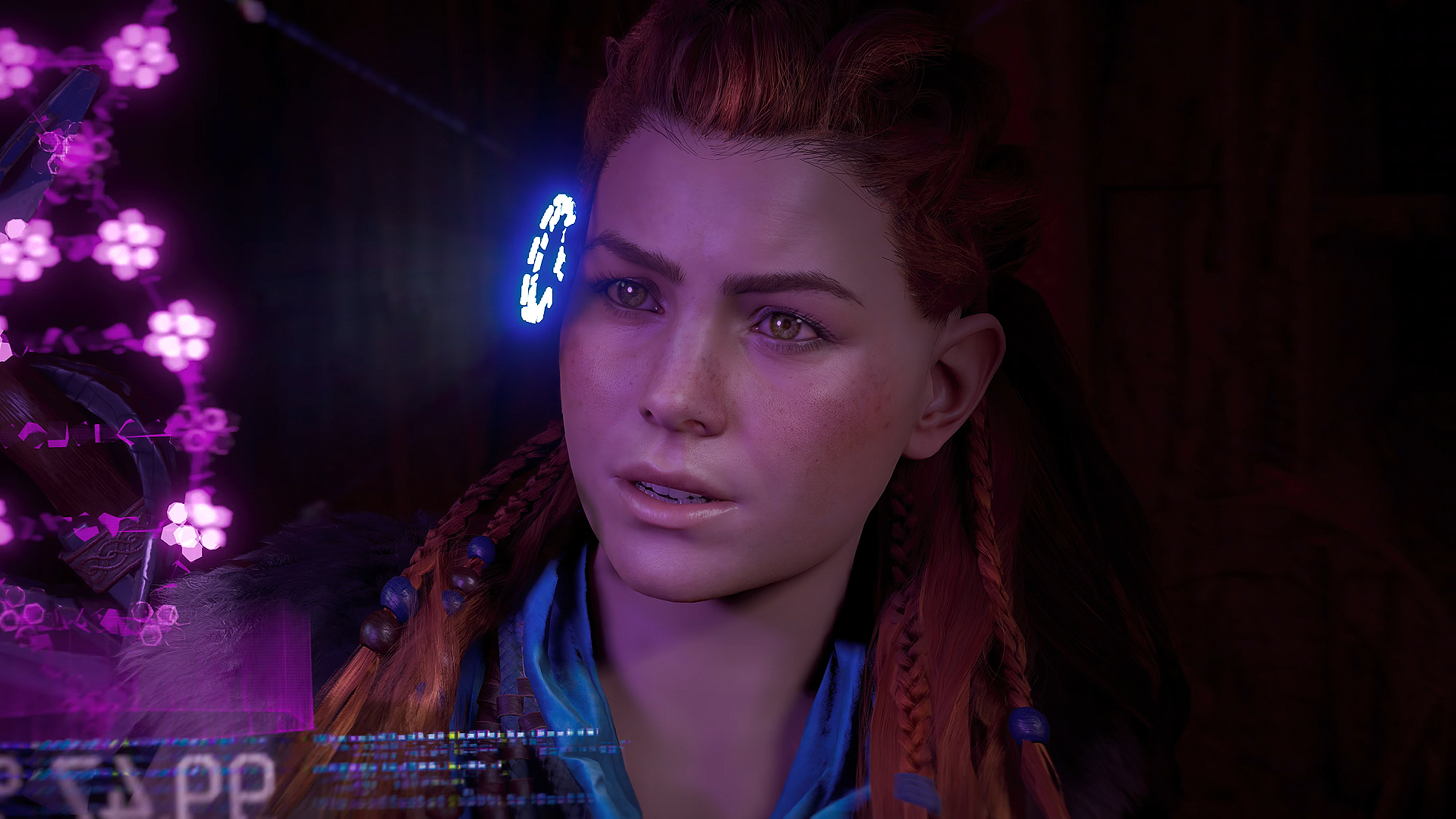
Not unlike Aloy, I was brought up in a staunch religion, one that told me what I could do, what I could wear, what I could consume, what I could think, how to judge others, and where I could learn. However, the internet was a huge educational tool in my teens and early 20s that introduced me to new ways of thinking and knowledge that contradicted a lot of what I was taught to believe. Of course, you cannot trust everything online, but much like Aloy’s Focus, it helped give me a different perspective than my parents and peers who refused to explore outside their own beliefs.
Seeing Aloy grow up in a culture that put constraints on her and then watching her interact with people who refuse to see past their beliefs when confronted with new knowledge was incredibly relatable. However, I was impressed by how she still manages to not dismiss them entirely. As Horizon lead writer John Gonzalez explained, Aloy is “always trying to see beneath whatever beliefs people are mystifying,” which is a very relatable thing for someone who doubts a religion.
[Aloy’s] not out there to disabuse people of their notions. But she is not someone who shares them.
John Gonzalez, Horizon lead writer
At one point in the first game, Aloy is told by an elder that the gods are angry and punishing them with dangerous machines. In reality, the machines have been corrupted and must be dealt with. So Aloy takes care of the problem, which benefits everybody who refused to take action based on superstition. She’s very straightforward about pointing out flaws in others' thinking, but without being unnecessarily heated or malicious. As Gonzalez explained, “[Aloy’s] not out there to disabuse people of their notions. But she is not someone who shares them.”
After HZD's initial tutorial phase, Aloy becomes a member of the tribe thanks to one Nora Matriarch who believes in her. She is then tasked with leaving the Sacred Lands to learn more about the world. Seeing her get blessed by the Matriarchs was in itself healing since I had seen myself as part of the lesser sex since I was a child, whether advertently or inadvertently taught by LDS church leaders.
In the Mormon religion, only teenage boys and men can hold the Priesthood power that’s supposed to be able to heal, give out blessings, and bestow leadership positions on others, which makes women dependent on them. This was something that many of my college friends in the Ordain Women movement had been heavily pushing to change in the years leading up to HZD’s release. So seeing women grant power to Aloy filled me with joy.
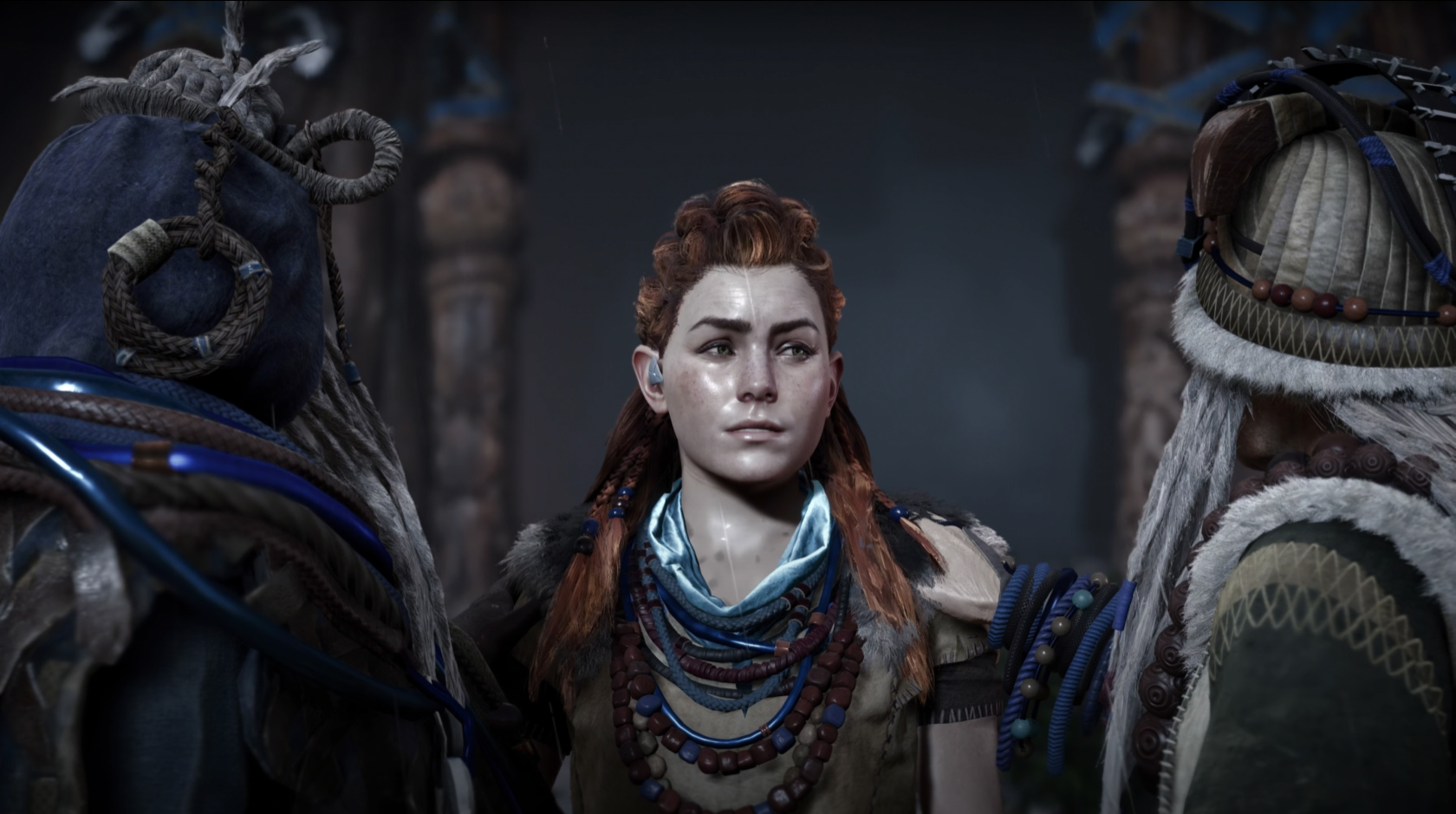
The moment Aloy and I took her first steps out of Mother’s Embrace and headed west, I felt second-hand elation and freedom, and it gave me a longing for that same feeling in my own life. No longer was Aloy stuck in the stifling bubble that she had grown up in. She was going to explore and learn what was really going on in this world without anyone influencing her or telling her what she could or couldn’t do.
Throughout the rest of the game, Aloy meets people of different cultures and backgrounds. She becomes friends with those who are willing to discuss the facts she learns but still butts heads with those who mean harm. Aloy’s freedom to say what she thinks while still being a fundamentally good person stuck with me long after I beat the game. The way I felt whenever she pointed out fallacies and poked holes in superstition fulfilled me in ways I didn’t know I needed, and helped me decide that I needed to fully leave the LDS religion. This is not only an internal and social change but also requires getting a lawyer involved.
After some careful planning, I finally informed my parents that I hadn’t believed in their faith for a while and that I was now going to live life the way I wanted. This put a huge strain on our relationship and also put an unnecessary barrier between me and some of my friends. However, it also strengthened some of my other relationships and helped me grow closer to some friends and family. Most importantly, I felt happier than I had ever been with this new-found freedom to live life the way I wanted to.
In the following years, I've worked hard to research even further outside of the approved materials offered by the Mormon church to truly establish my own political and social beliefs, not unlike Aloy’s quest to learn about the world around her. I learned things I never would have otherwise, and while I sometimes feel like I’m behind the rest of the world when it comes to common knowledge (like how up until recently I didn’t know how a cappuccino differed from a latte) I’m happy I made this decision when I did so I can live the rest of my life the way I want to.
Tackling our personal beasts
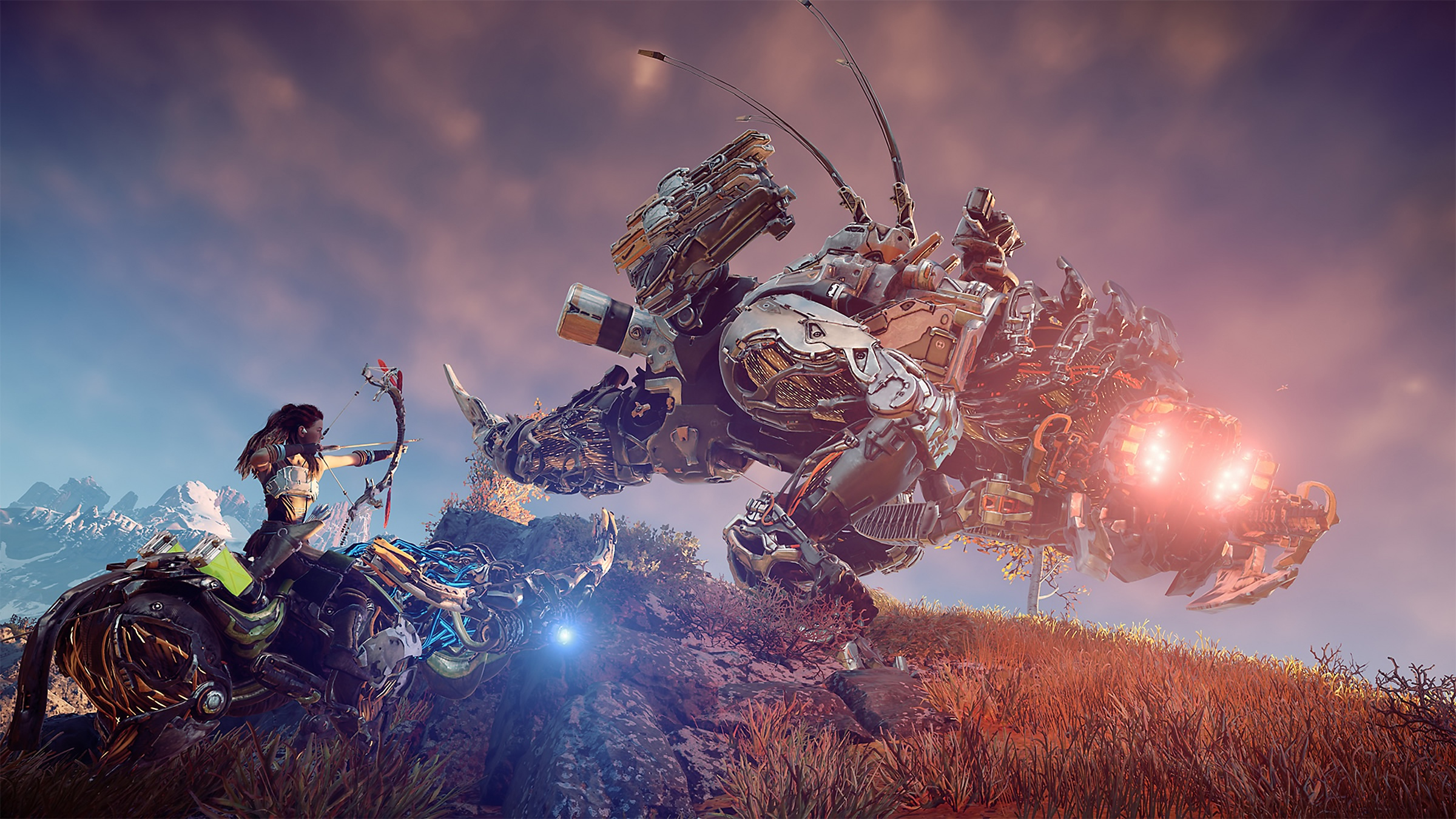
In my experience, people don’t want to learn things that massively change their outlook. After spending years creating a narrative of the world that makes the most sense to us, it's terrifying to break down those glass walls and step out into the vast world. We might realize we’ve wasted years doing unnecessary things that aren’t important when we thought they were paramount. So instead we take the easy route and push our terrifying discoveries back down so we can hide in familiarity, afraid of the unknown.
When I first realized I didn’t believe in the Mormon religion it was not a calming thought. It was terrifying and I attempted to ignore it for a while. I no longer fit in with my faithful family and peers, and was questioning everything I knew, I had no idea what I actually believed in, and I was afraid of losing my social circle. I had a panic attack which lasted for months.
There’s the social aspect too. Once you completely change your view of things, those you used to share beliefs with, namely friends and family, sometimes reject you, judge you, or discredit everything you say. In that way, it’s easier to push your discoveries aside and just try to blend in, no matter how miserable it makes you.
However, if you do tackle these complicated things head-on, you might find yourself feeling freer than you ever have before. Being yourself can even help you make better relationships than the ones you previously had. In my experience, the difficult journey of getting to where I currently am was well worth it.
Continuing to grow with acceptance
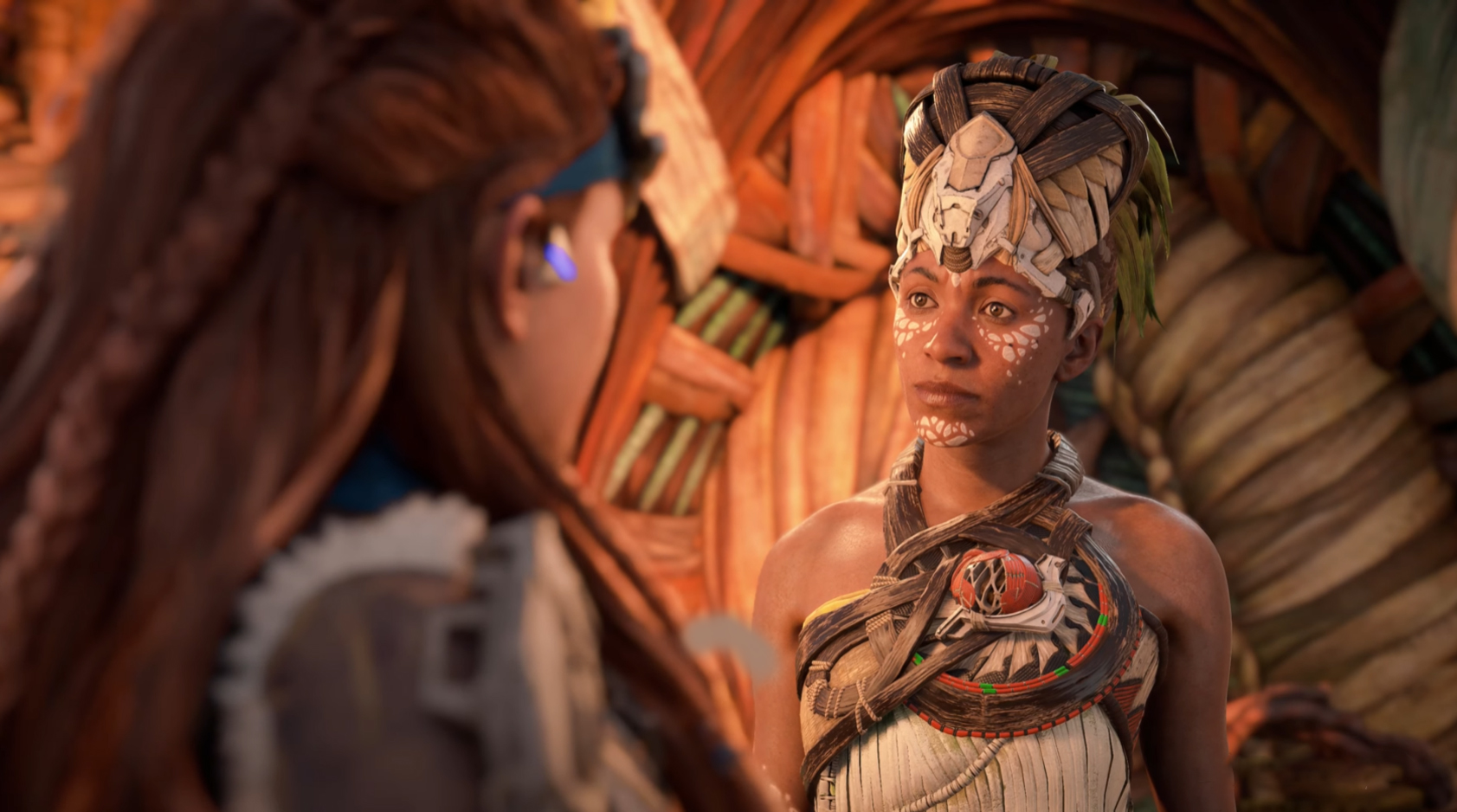
It can be tough to understand people who don’t share the same beliefs as you, but I’ve always tried to be respectful of others. It isn’t always easy, though. We see Aloy struggle with crossing this line throughout the first two games, but it only shows how human she is. Notably in the second game, Horizon Forbidden West (HFW), Aloy starts off rather standoffish when dealing with others and their cultures, but eventually learns to lean on friends and to be more accepting of others’ beliefs by the end.
For instance, in the sequel, Aloy establishes a home base and brings several people into it from different lands so they can learn more about the world using Focuses and a massive database. One of these friends, a woman named Zo, still holds special feelings for the machines her culture worshipped as gods even with her new-found knowledge. Aloy is confused and frustrated by this at first, but she goes on a side quest to repair her friends’ gods. In so doing, she comes to learn of the many good memories Zo has of these machines and learns to respect her friend’s feelings.
I myself have become an atheist in the past few years, but many of my closest friends who also left the religion have come to different conclusions. One of my closest friends has told me many times that having a religion makes her feel like a better person because it makes her more mindful of others, and I respect that. Another good friend is still faithful within the religion and finds happiness in it. However, she and I can talk in a way that I can't with many others within the religion thanks to the mutual respect we share for each other.
Playing as Aloy makes me feel powerful like I can do anything, defeat any problem, or conquer anything that comes my way. She stands as a perfect example of fighting to learn and grow while also struggling to be a good person. I would have left Mormonism with or without her, but Aloy definitely strengthened my resolve and helped me taste the freedom it would bring before I officially did it.
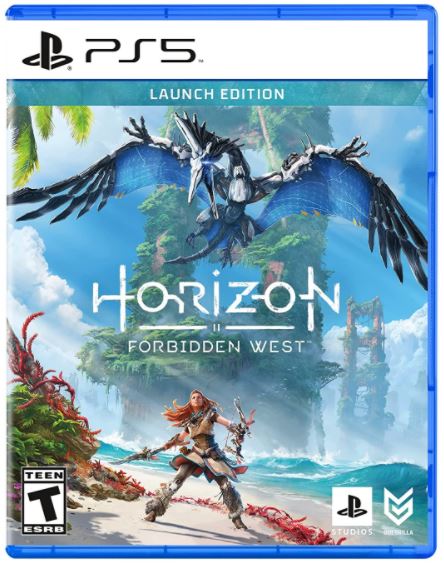
Horizon Forbidden West continues Aloy's story, having her trek across the west to learn more about her world and then save it.
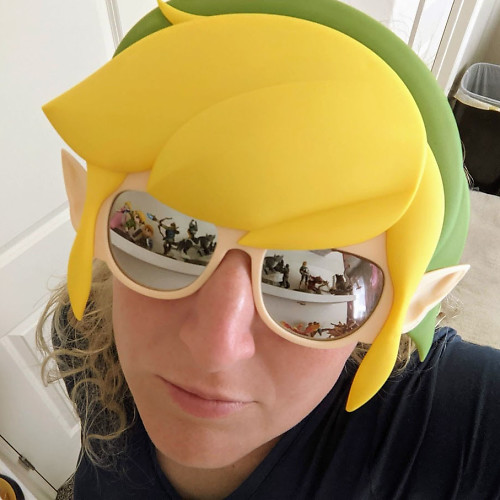
Rebecca Spear is a staff writer for Android Central who loves following the latest tech, drawing with her Wacom, and playing video games. You can find her posting about her pets, art, and video game preferences on Twitter @rrspear.
